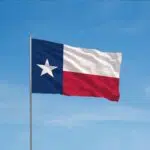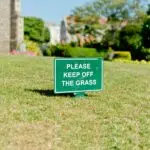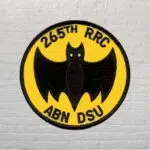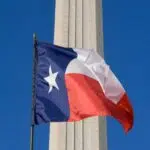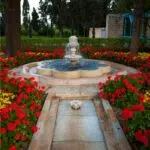Thank You For Libraries Day is celebrated annually on April 21 to appreciate the contribution of libraries to society and their roles in transforming lives. Did you know that the first systematically organized library in the world dates back to the 7th century B.C.? Libraries are a collection of materials, books, or media that are accessible by the public. Libraries are a repository of knowledge, providing opportunities for learning and supporting literacy and education. In most communities, they are the center of art and culture and help drive creativity and innovation. There are currently over 110000 libraries spread across the United States.
History of Thank You for Libraries Day
According to historians, the birth of libraries marked the end of prehistory and the start of history. The first libraries were nothing more than archives for commercial transactions or inventory records. The first libraries appeared in Southwest Asia’s Fertile Crescent, which ran from Mesopotamia to the Nile in Africa about 5,000 years ago. This same area was also the birthplace of writing before 3000 B.C. These libraries contained records written on clay tablets, stacked on edge, side by side. Libraries of the same nature were found in several regions, including Ugarit, China, Nippur, and Nineveh. In the 3rd century B.C., the construction of the Library of Alexandria in Egypt began. The project was sponsored either by Ptolemy I Soter (323 B.C. to 283 B.C.) or his son Ptolemy II (283 B.C. to 246 B.C.). The library became the largest and most significant great library of the ancient world until the Roman conquest in 30 B.C. During this period, the Han Dynasty created three libraries, which featured the first library classification system.
During the Greco-Roman period, libraries thrived under the patronage of wealthy citizens and each succeeding Roman emperor. Asinius Pollio established the first public library in Rome, and his successors added to the number. After the fall of the Roman Empire, the Christian Church became the new power in Europe. Hellenistic texts thought to be pagan were left to decay, and only those related to Christianity survived. However, that was different in Eastern Europe, where monks labored day and night in scriptoriums to preserve Classical Greek and Roman works. In the Muslim world, libraries flourished as the Chinese art of papermaking was acquired. Under the patronage of caliphs and Muslim leaders, important Islamic cities, such as Baghdad, became centers of knowledge and scholarship.
Between the Renaissance and Enlightenment eras, libraries began appearing in some parts of Europe, including Italy and Hungary. These libraries serve as a center for scholars of renown to congregate. Most of these libraries were endowed by prominent individuals, including kings, queens, and popes. At the start of the 18th century, libraries became increasingly open to the public, allowing people to loan books. In 1833, the first tax-supported public library in the U.S. was established in Peterborough, New Hampshire. The library was a joint effort by the Peterborough Town Meeting and state funds from the State Literary Fund.
Between the 19th century and late 20th century, the number of public libraries drastically increased with the support of philanthropists and businessmen, including John Passmore Edwards, Henry Tate, Andrew Carnegie, and Bill and Melinda Gates. In the 21st century, libraries moved from only offering physical collections to providing access to digital resources, including e-books and internet services.
Thank You for Libraries Day timeline
The first libraries appear in Southwest Asia's Fertile Crescent, the birthplace of writing.
The town of Peterborough builds its first library with the support of state funds from the State Literary Fund.
Philanthropists and businessmen provide funds to build more public libraries in the United States.
Libraries begin offering access to both physical and digital collections, including e-books and internet services.
Thank You for Libraries Day FAQs
What is the biggest library in the U.S.?
The Library of Congress is the largest library in the United States, holding over 34 million volumes.
What is the purpose of Thank You For Libraries Day?
The primary purpose of Thank You For Libraries Day is to appreciate the impact libraries are having in our communities.
How do you thank a librarian?
The simplest way to thank a librarian is to send a thank-you note. You can also buy them lunch, send them flowers, or get branded merchandise.
Thank You for Libraries Day Activities
Campaign for more funding
Each year, funds allocated to libraries are cut down, making it difficult to operate effectively. Reach out to your local government officials to get more funding for your local library. Also, you can obtain people’s signatures for your petition to increase library funding and submit it to Congress.
Send a thank-you to a librarian
There are different ways you can appreciate librarians on Thank You For Libraries Day. You can simply send a thank-you note or card to your favorite librarian or take them out for lunch.
Share facts about libraries on social media
Another way to appreciate libraries is to share facts about them. That way, people will learn the importance of libraries and be encouraged to visit them more. The facts section of this article can help you get started.
5 Interesting Facts About Libraries
The world’s largest book
The largest published book in the world is “The Prophet Mohammed,” weighing about 3000 pounds and measuring 16.40 ft by 26.44 ft.
The library between countries
The Haskell Free Library and Opera House is situated on the border between the United States and Canada.
The oldest continually operated library
Saint Catherine Monastery at the foot of Mount Sinai houses the oldest continually operated library in the world.
The biggest fine
When she returned a book that her mother checked out, Emily Canellos-Simms was charged $345, the world’s largest fine for an overdue library book.
The city of libraries
Warsaw, the capital of Poland, has the highest number of libraries per capita, 11.5 libraries per 100,000 citizens.
Why We Love Thank You for Libraries Day
Libraries offer free educational resources
Libraries in the United States offer access to educational materials and resources free of charge. Anyone from anywhere across the United States can use these resources, including the internet, academic and professional training programs, and books, without worrying about the cost. People also take advantage of the knowledge librarians have to offer to get answers to questions such as book recommendations and card catalogs, computer and internet training, job applications and resume writing, and filling out government forms.
Libraries preserve cultural heritage
Libraries hold centuries of learning, information, and history and increase these vast collections each year. A majority of items in these collections can’t be found anywhere else. Without the copyright exceptions provided to libraries, this cultural heritage would be lost to future generations.
Libraries connect communities
As a center of knowledge and information, libraries connect people across communities more than any other place in society, including town halls, community centers, and public parks. In libraries, you will find a melting pot of students, professionals from different fields, various nationalities, the young, and senior citizens.
Thank You for Libraries Day dates
| Year | Date | Day |
|---|---|---|
| 2026 | April 21 | Tuesday |
| 2027 | April 21 | Wednesday |
| 2028 | April 21 | Friday |
| 2029 | April 21 | Saturday |
| 2030 | April 21 | Sunday |


